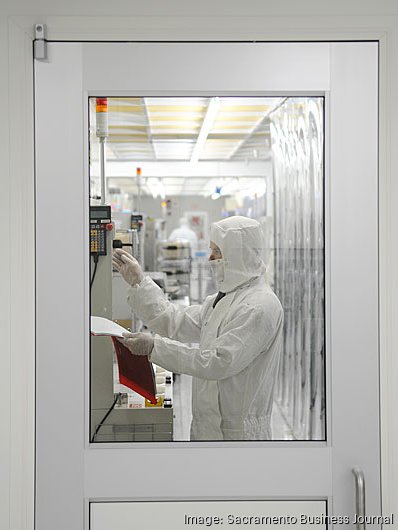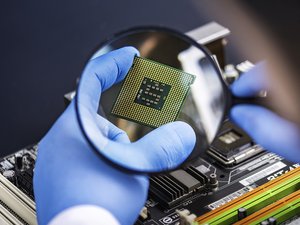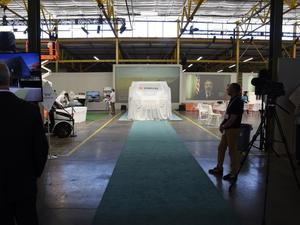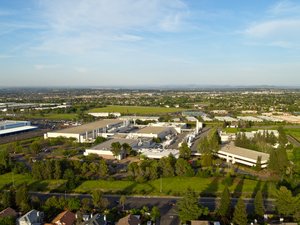
Bosch is seeking $25 million in tax credits from California for investing more than $1.2 billion in the expansion and renovation of a nearly 40-year-old Roseville semiconductor manufacturing plant.
The German engineering and technology company said in April that it wanted to buy Roseville's TSI Semiconductors and upgrade it quickly to bring a new generation of silicon carbide chips to market, primarily for the electric transportation industry.
Bosch said in April it would seek federal funding under the CHIPS and Science Act to do the renovation. With its application for California Competes Tax Credits, the company is also seeking support from the state.
In its announcement in April, Bosch said it planned to invest $1.5 billion in the existing TSI site in Roseville, not including the cost of buying TSI. Neither company disclosed the value of the TSI purchase, which has yet to be completed.
The Roseville company is still called TSI Semiconductors, but the application with the state of California calls the company seeking the tax credits Robert Bosch Semiconductor Manufacturing US Carbide LLC.
Bosch is seeking up to $25 million in tax credits from the state for making investments in Roseville of more than $1.2 billion over five years. Part of the agreement includes adding employees in the Roseville operation, to a total increase in full-time employees of 140 people by the 2027 tax year.
The California Competes Tax Credit is one of the state’s economic incentives to support growing companies. It's administered through the Governor’s Office of Business and Economic Development, also known as GO-Biz.
The state does not pay companies under the California Competes program. Rather, the state forgives taxes to the specified amount if the companies meet hiring and investment goals over time.
The goal of the federal CHIPS Act is to spur domestic chip manufacturing and to create jobs in future manufacturing technologies. It provides $52 billion in subsidies for domestic manufacturing, plus investment tax credits for the cost of manufacturing equipment. The aim of the act is to bring semiconductor manufacturing back to the U.S.
More than 50 new domestic chip fabrication projects have been announced since the CHIPS Act was approved, with private companies pledging more than $210 billion in investments, according to the Semiconductor Industry Association.
Bosch plans to produce 200-millimeter, silicon carbide chips that will be widely used in multiple industries, including automotive in electric vehicles. Silicon carbide chips allow for higher efficiency so the electric vehicle needs less battery power or gets increased range.
In an interview on Bloomberg Television, Stefan Hartung, chairman of Stuttgart-based Bosch's board of management, said he wants the Roseville plant to start delivering chips primarily to the automotive market by 2026.
The Roseville TSI chip plant now has 250 employees working in clean-room environments making energy control chips for industry and the auto market.








